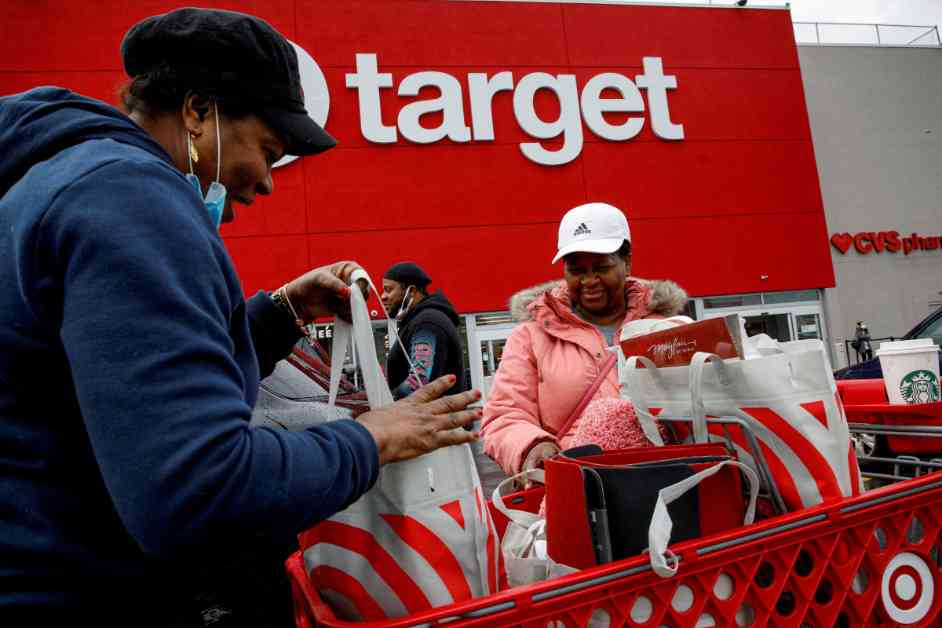Target Revamps Store Policy to Combat Customer Abuse
In a bid to crack down on customer abuse, retail giant Target has recently made significant changes to its renowned return policy. The move comes after years of reports of customers exploiting the policy by returning heavily used or stolen items, costing the company millions of dollars in losses.
Target’s updated return policy now includes stricter measures to prevent fraud, suspected fraud, or abuse. The company reserves the right to deny returns, refunds, and exchanges if there are suspicions of misuse. This change aims to deter customers from taking advantage of the lenient return policy that Target has been known for.
The decision to tighten the return policy comes after suppliers expressed concerns about the high rate of abuse, with customers returning items that were several years old or clearly used. Target’s lenient return policy has made it an easy target for fraudsters looking to make a quick profit at the company’s expense.
Target’s spokesperson confirmed that while the wording of the policy has been modified, the core policy itself remains the same. Customers can still return most unopened items in new condition within 90 days, but now with stricter scrutiny to prevent abuse.
Rising Abuse and Financial Losses in Retail Industry
The National Retail Federation reported that US retailers lost a staggering $101 billion last year due to return abuse. Half of the retailers surveyed reported instances of customers returning used, non-defective products, leading to significant financial losses for the industry.
In addition, 44 percent of retailers reported cases of customers attempting to return shoplifted or stolen merchandise, while 37 percent witnessed fraudulent returns made with stolen payment methods. These alarming statistics highlight the widespread nature of return abuse in the retail sector, with major retailers like Target bearing the brunt of these losses.
Target’s Struggle Against Theft and Fraud
Target has been particularly impacted by theft and organised retail crime, prompting the closure of nine stores across four states due to security concerns. Employees have raised concerns about customers exploiting the company’s generous return policy, with reports of customers attempting to return stolen items or products they had previously shoplifted.
One former Target employee shared their experience on Reddit, recounting instances of customers attempting to return clearly used or stolen items. Another employee mentioned encountering customers trying to return old shaving razors, facial cleansers, and personal care products all at once, indicating a pattern of abuse that the company is now cracking down on.
Target’s Efforts to Combat Return Fraud
The retail industry as a whole is facing a growing challenge of return fraud, with major retailers like Target taking steps to address the issue. While Target’s return policy remains relatively lenient compared to other retailers, the recent changes signal a shift towards stricter enforcement to prevent abuse.
Other major retailers like Costco also have lenient return policies, including the acceptance of half-eaten food. However, these policies have exceptions, with certain items like cigarettes, alcohol, and batteries excluded from returns. Target’s decision to tighten its return policy reflects a broader trend in the industry to combat return fraud and protect businesses from financial losses.
Changes in Payment Methods
In addition to updating its return policy, Target has also made changes to its accepted payment methods. The company announced in May that it would no longer accept personal checks starting July 15, citing the declining popularity of this payment method among customers.
While checks were once a common form of payment, they have become increasingly obsolete in today’s digital age. With credit and debit cards now the preferred payment method for most consumers, Target’s decision to discontinue personal check acceptance aligns with the shift towards more modern and convenient payment options.
Retail expert Neil Saunders of Global Data commented on the trend, noting that checks are becoming a relic in the retail industry. Other retailers like Aldi and Whole Foods have already banned personal checks, with some limiting their use to specific registers. Target’s move to eliminate personal checks reflects a broader industry shift towards more efficient and secure payment methods.
Conclusion
In conclusion, Target’s decision to revamp its return policy and payment methods reflects a growing concern in the retail industry over customer abuse and fraud. By implementing stricter measures to prevent misuse of its generous return policy and updating its payment methods to align with modern trends, Target is taking proactive steps to protect its business from financial losses and maintain the trust of its customers. As the retail landscape continues to evolve, companies like Target must adapt to changing consumer behaviors and market dynamics to stay competitive and secure their long-term success.













